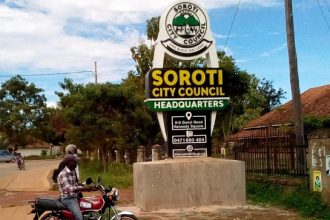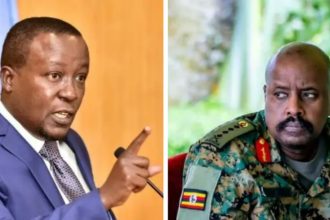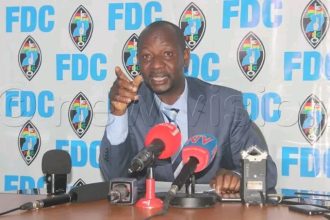On June 15th, President Kyagulanyi Ssentamu Robert, also known as Bobi Wine, participated in an exclusive interview on Newzroom Afrika TV in South Africa. During this interview, he explained the purpose of his visit, which included screening a documentary film and highlighting the state of human rights in Uganda.
“Every year, we have a human rights accountability conference which we definitely cannot hold in Uganda because of obvious reasons; the last time we held it in Kenya and we took the opportunity again, thanks to the FNF foundation, to have human rights violations and testimonies here in South Africa,” he said.
President Wine also discussed his transition from being a pop star to becoming a vocal critic of General Museveni. He mentioned that while being a musician was less troublesome, he felt compelled to enter politics to help liberate Uganda from suffering and injustices.
“I came into politics not to be president per se but to inspire young people to see what must be seen so that they can do what must be done,” he explained.
He recounted his experiences as a regime critic, noting that his political rise inspired a movement among young people, which led to repression from General Museveni’s regime. He described this repression as including brutality, extrajudicial killings, abductions, and imprisonment.
“Our generation was the biggest threat to General Museveni’s now 38-year hold on power, and he responded with a massive crackdown. I’ve been lucky to survive imprisonment and torture, though many of my friends have lost teeth, eyes, or their lives,” he said. “I survived an assassination attempt in 2018 where my driver was killed, I was tortured, and many of my friends were killed. In 2021, I ran against General Museveni, and during the campaigns, I was arrested, leading to massive protests and a massacre.”
President Wine also spoke about the 2017 age limit controversy when he was a legislator for Kyandondo East in Uganda’s parliament. He criticized General Museveni’s efforts to extend his stay in power by amending the constitution, using military force to do so.
“Uganda is the second youngest country in the world with more than 85% of its population under the age of 35. We challenged him and defeated him in 2021, and the world knows it,” he said. “In Uganda, we don’t have real elections; we have rituals. The main opposition party is not allowed to organize, and my campaign team was rounded up. Many remain in prison to this day.”
Reflecting on South Africa’s democracy and the 2024 polls, President Wine praised the country’s respect for the will of its people. He contrasted this with Uganda’s situation, where he believes the vote does not count.
“South Africa is not where it deserves to be, but it is where many of us desire to at least reach. Here, people are voting for issues, but back in Uganda, we are struggling to find a voice and for our votes to matter,” he said.
He also urged African youth to become more involved in politics, noting that historically, significant changes in Africa have been driven by young people.
“It is unfortunate to see that Africa is largely governed by elderly people, making plans for young people. Young people all over Africa should get actively involved in politics because they can make a difference. Historically, all significant changes in Africa were made by young people. We must look back and get inspired,” he said.
During his visit, President Wine was accompanied by five torture victims who shared their experiences with the audience in South Africa. These individuals included Ssebuganda Richard, a medical school graduate who lost his fingers to a police teargas canister, and Monica Nabukeera, among others. Their stories shocked the audience, highlighting the human rights abuses they suffered under General Museveni’s regime.
The documentary film, “Bobi Wine: The People’s President,” was screened at Rosebank Cinema Hall in Johannesburg. Supported by the Friedrich Naumann Foundation, the film provided a firsthand view of the events during the 2021 general elections in Uganda.




















